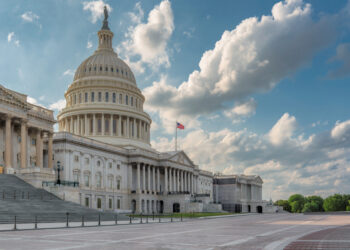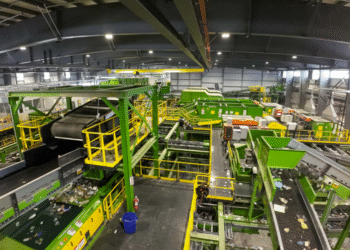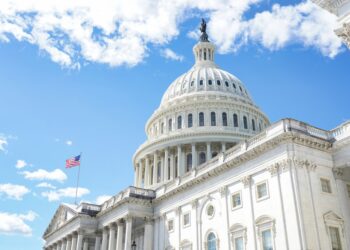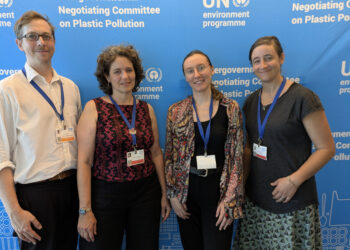Legislators in Rhode Island have introduced bills to create a bottle bill for the state as well as an extended producer responsibility program for packaging.
Rep. Carol Hagan McEntee introduced H 6207, aimed at significantly increasing recycling rates in the state for food and beverage packaging. She based the bill on recommendations from a joint commission study that studied plastic bottle waste, according to a press release.
The legislation would implement an EPR program for packaging and printed paper as well as a deposit return system for beverage containers. It combines the aims of two other bills she co-sponsored: H 6206 for DRS and H 6205 for an EPR program for packaging and paper products.
The state’s 2025 legislative session ends June 30.
“Rhode Island’s recycling rate is a measly 26 percent, and we are polluting our beautiful state at an alarming rate,” McEntee said in the press release.
The group Save the Bay published an opinion piece April 18 in support of the bills, citing a poll indicating that 58% of Rhode Islanders supported a bottle bill compared to 31% who opposed it.
“It’s also popular in the 10 states that have a bottle bill with 90 percent of citizens in those states supporting it,” wrote several recycling stakeholders in the piece, including Steve Alexander, CEO of the Association of Plastic Recyclers. APR owns Resource Recycling, Inc., publisher of Plastics Recycling Update.
“Well-designed, modern bottle bill programs reduce litter and consistently achieve beverage container recycling rates of 90 percent and above,” the group wrote. “Modern bottle bills utilize technology like reverse vending machines and bag drop points to enable consumers to redeem in seconds at many types of locations like unused parking spaces.”
The group also noted that Rhode Island and New Hampshire are the only New England states that lack a bottle bill, leading the rest of the region to produce higher-quality post-consumer material for use in recycling and new packaging.
American Beverage Association backs opposition effort
In response, a coalition supported by the American Beverage Association opposes the bottle bill on the basis that a DRS “will raise costs on local small businesses and working families at a time Rhode Islanders are struggling with rising grocery prices and the high cost of living,” according to a press release.
The group supports establishing an EPR program for packaging, however, to increase recycling rates. “Rhode Island has an effective and efficient curbside recycling system that is convenient for all residents,” the group added in its statement.
“The State Legislature has the ability to adopt a modern system that captures all types of packaging instead of requiring massive new state investments in infrastructure for beverage containers only, which will only create new burdens for families, businesses and local governments. The reforms being proposed in the Extended Producer Responsibility (EPR) legislation will increase recycling rates by having producers of packaging take on the responsibility for strengthening recycling in the state.”
In addition, in its stated position, the National Waste & Recycling Association says bottle bills “destabilize recycled commodities markets by limiting the amount of recycled plastics and aluminum in curbside streams, driving up the cost of producing recycled materials/products.”






























